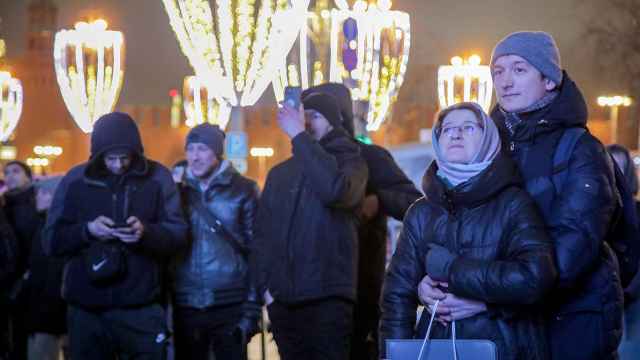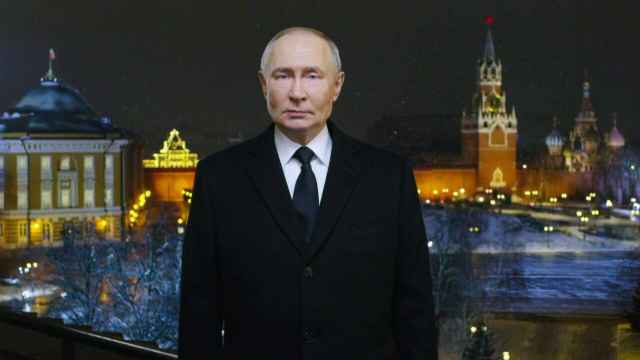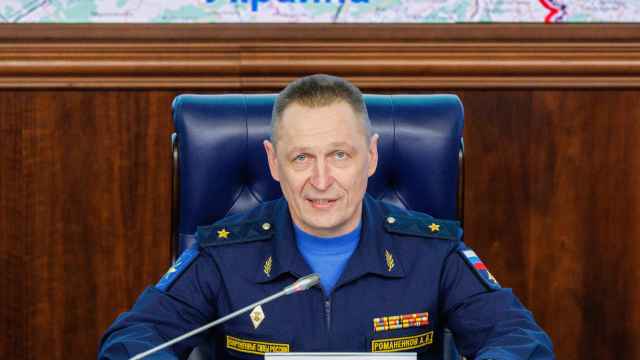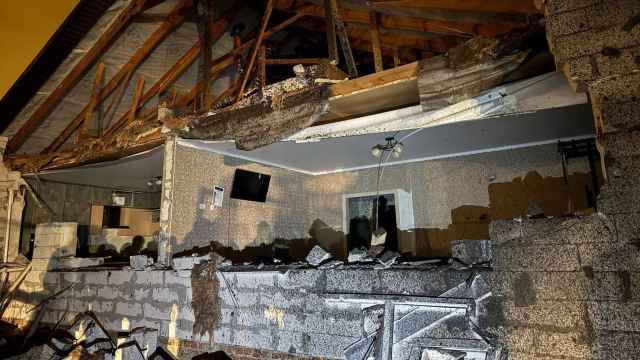A devastating wave of wildfires across Russia could ravage millions of hectares of forests and cause worse damage than last year's catastrophic blazes, environmentalists and officials said Thursday.
"We're burning, burning badly," said Greenpeace's forestry expert Alexei Yaroshenko. "This year's situation is already much worse than last year's."
In 2010, an unprecedented heat wave triggered fires that killed 55 people, destroyed thousands of houses and 2.6 million hectares of forests.
This year, three firefighters have died, and dozens of wildfires have already engulfed more than 600,000 hectares of forests — nearly three times more territory than this time last year, the Emergency Situations Ministry reported.
Greenpeace claimed that the government is silencing information about fires, especially about the renewal of peat bog fires around Moscow that cloaked the capital with acrid smoke last year.
"There are dozens of them around Moscow," Greenpeace's Grigory Kuksin told journalists. "It's technically impossible to put out some of them already."
"A large amount of fires last year and this year do not show up in official statistics, but we've counted 64 peat fires around Moscow right now," Yaroshenko said.
Once ignited, peat bogs can smolder for months or years, surviving heavy rains and snow. While burning, they emit acrid smoke that can aggravate asthma, bronchitis and heart conditions.
Moscow last year was engulfed in a thick blanket of smog that, combined with the intense heat, doubled the death rate.
In the Soviet era, authorities extensively drained numerous peat bogs around Moscow and other cities in western Russia to extract peat to be used as fuel. Once coal and black oil replaced peat, the drained peat bogs were left unattended.
Moscow authorities have allocated some $150 million to flood the peat bogs, but Greenpeace said that little has been accomplished due to corruption and bureaucracy.
"What's been done is a drop in the ocean," Yaroshenko said.
The Federal Forestry Agency chief played down the threat to Moscow this year, but admitted that a surge in forest and peat bog fires is imminent.
"The summer will be tense and uneasy," Viktor Maslyakov told journalists.
He said the government should declare an emergency situation in three Siberian regions, where unusually hot and dry weather caused multiple wildfires.
Deputy Prime Minister Viktor Zubkov accused illegal loggers of starting some of the Siberian fires to conceal the traces of their work.
"They set it all afire — and covered it all up," he was quoted by Itar-Tass as saying.
Russia's forests constitute 22 percent of the world's total woodlands, an area larger than the continental United States.
"Our planet has two lungs — the Amazon rainforest and the Siberian taiga," said Vladimir Gandzha of Russia's Nature Protection Society, the nation's oldest environmental group. "The latter that is blazing now."
(AP, Reuters)
A Message from The Moscow Times:
Dear readers,
We are facing unprecedented challenges. Russia's Prosecutor General's Office has designated The Moscow Times as an "undesirable" organization, criminalizing our work and putting our staff at risk of prosecution. This follows our earlier unjust labeling as a "foreign agent."
These actions are direct attempts to silence independent journalism in Russia. The authorities claim our work "discredits the decisions of the Russian leadership." We see things differently: we strive to provide accurate, unbiased reporting on Russia.
We, the journalists of The Moscow Times, refuse to be silenced. But to continue our work, we need your help.
Your support, no matter how small, makes a world of difference. If you can, please support us monthly starting from just $2. It's quick to set up, and every contribution makes a significant impact.
By supporting The Moscow Times, you're defending open, independent journalism in the face of repression. Thank you for standing with us.
Remind me later.





